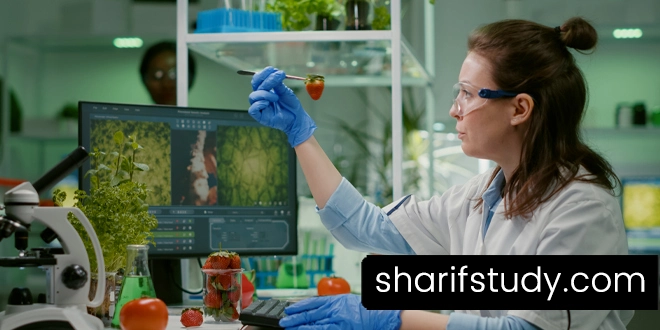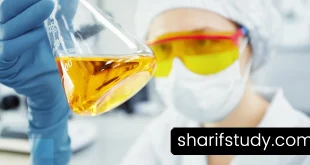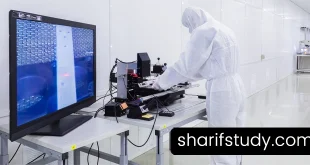In 1973, the Food Technology program was founded. It is a four-year curriculum that incorporates the practical application of “Food Science” to preserve, process, package, distribute, and securely deliver healthy and healthful nourishment to customers. In this article, we explain USM Food Science and Technology.
Bachelor of Technology (Food)
With a Food Tech undergraduate degree at USM University, you can work in industry and academia to improve food quality and safety while also developing new food products.
You would be working with the most recent advances in basic research, process engineering, packaging technology, and management techniques used in the food production chain.
Their program is specifically designed to provide technical knowledge to assist the food processing industry in becoming more efficient and waste-free. Bachelor of Food Technology tuition fees for academic year 2023-2024 is 15,00 Ringgit.
USM University’s Food Tech undergraduate program does more than just teach students about the concepts and methods involved in food technology.
It equips them with hands-on practical skills, preparing them for real-world challenges. Through laboratory sessions, field trips, and internships, students get a first-hand experience of the industry and understand the dynamics of working in a professional setting.
They learn to use the latest tools and technologies used in the food processing industry, becoming adept at ensuring the quality and safety of food products, thereby making them valuable assets to their future employers.
Program Structure
- Introduction to Food Science and Technology
- Introduction to Food Physics
- Statistics with Computer Applications
- Mathematics I
- Organic Chemistry I
- Persuasive Oral Presentation for Food Technology
- Basic Scientific Communication for Food Technology
- Food Chemistry
- Food Microbiology I
- Introduction to Food Engineering
- Management of Halal Food
- Analytical Chemistry I
- Chemical Food Analysis
- Food Microbiology II
- Unit Operations in Food Processing
- Biochemistry
- Fundamentals of Bioprocess Technology
- Food Ingredient
- Physical Chemistry I
- Instrumental Food Analysis
- Food Processing Technology of Animal-Based Products
- Physical Properties of Food
- Post Harvest Technology of Fruits and Vegetables
- Primary Products Technology
- Experimental Design and Computer Applications
- Processing Technology of Plant-Based Food Products
- Sensory Science
- Food Quality Management and Food Regulations
- Human Nutrition
- Food Bioprocess Technology
- Food Product Development
- Food Safety
- Enzyme Technology
- Food Packaging
- Functional Foods
- Industrial Waste Management
- Food Research Final Project
- Food Borne Pathogens
- Food Defense
- Food Structure
- Food Technology Industrial Training
Master or Ph.D. in Food Technology
Food Technologists or Scientists do primary research, which involves analyzing the composition of raw food components. The applied research aspect entails improving the quality and shelf life of raw materials through processing, preservation, and packaging (canning, baking, drying, evaporation, pasteurization) in accordance with local government regulations.
to meet the demand of the food industry to meet international standards. Our academic staff is actively conducting research in the following major food technology research areas:
Food Chemistry: This course delves into the chemical makeup of food, studying how these components interact during processing and storage.
Food Safety: This course teaches students about potential hazards in food production and handling, including physical, chemical, and biological threats. It covers prevention and control strategies, principles of HACCP, and the role of regulatory agencies in ensuring food safety.
Food Processing and Preservation: Students learn various techniques for processing and preserving food, extending its shelf life while maintaining nutritional value and taste.
Food Packaging: Students in this course learn about the materials and techniques used in food packaging. The course may cover packaging design, the impact of packaging on food quality and safety, and sustainability issues related to packaging.
Food Microbiology: This course looks at the role of microorganisms in food, both beneficial (such as in fermentation) and harmful (causing foodborne illnesses).
Food Analysis: This course teaches students about the methods and instruments used to analyze the nutritional content, safety, and quality of food.
Functional Food: This course explores foods designed to have health benefits beyond basic nutrition, like probiotic yogurts or foods fortified with vitamins.
Food Engineering Nutrition: This course focuses on the engineering principles and techniques used in food production and processing, with an emphasis on how these processes affect the nutritional value of food.
FAQs
1.What are the main focus areas within the Food Science and Technology program at USM?
- USM’s Food Science and Technology program covers a wide range of focus areas including food chemistry, food microbiology, food processing and engineering, food safety and quality assurance, food product development, and nutrition.
2. What research opportunities are available for students in the Food Science and Technology program at USM?
- USM provides research opportunities for students to explore modern topics in food science and technology. These opportunities include conducting research projects, collaborating with industry partners, participating in conferences, and publishing research findings in reputable journals.
3. How does USM’s Food Science and Technology program prepare students for careers in the food industry?
- USM’s program blends theory with practical skills, providing access to modern facilities, industry internships, and mentorship, ensuring graduates are well-prepared for diverse careers in food manufacturing, research, quality control, and regulatory affairs.
 SharifStudy Best way to Study in Malaysia
SharifStudy Best way to Study in Malaysia




